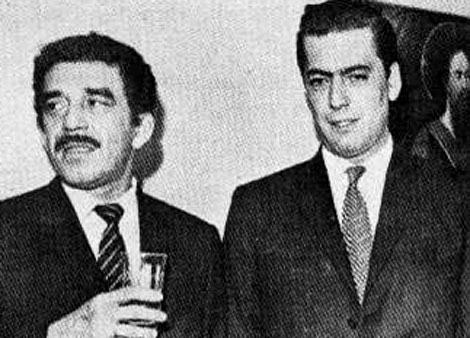Peruvian author Mario Vargas Llosa bid farewell to a fellow Latin American literary giant, Gabriel Garcia Marquez, who passed away on Friday at the age of 87.

The two celebrated authors, both winners of the Nobel Prize for Literature, had been close friends early in their career but a later feud resulted in them not speaking to each other for almost four decades. Still, the authors, while holding vastly different political views, respected each other’s literary work.
“A great author has died,” the 78-year-old Vargas Llosa said Friday. “His novels will outlive him and will continue to win over readers everywhere. I send my condolences to his family.”
The Colombian author passed away on Friday in his home in Mexico City from complications following pneumonia. Garcia Marquez was cremated in a private ceremony in Mexico City on Monday, at which the Presidents of Mexico and Colombia were present, standing vigil together at the coffin just prior to cremation.
Garcia Marquez is best known for his use of magical realism in his novels, receiving widespread accolades and earning him the Nobel Prize in 1982, a few years after the publication of perhaps his most famous work, One Hundred Years of Solitude (1967). Other classics include The Autumn of the Patriarch (1975) and Love in the Time of Cholera (1985).
Macondo, the name of the fictional village in some of his works, has become part of the Latin American lexicon, used to describe a country, place or situation that is indescribable or akin to a “basket case.”
Perhaps the first to break dress protocol at the Nobel awards ceremony, Garcia Marquez wore a white linen “guayabera” shirt instead of the traditional white tie and tails to receive the award from the King of Sweden.
Author Salmon Rushdie, writing in the New York Times on Monday, called Garcia Marquez “the greatest of us all.”
“No writer in the world has had a comparable impact in the last half-century,” Rushdie said. “He was a journalist who never lost sight of the facts. He was a dreamer who believed in the truth of dreams. He was also a writer capable of moments of delirious, and often comic, beauty.”
Like Vargas Llosa, Garcia Marquez is one of the leaders of a movement in Latin America in the 1960s and 1970s that launched the region onto the literary world stage. Other prominent members of the Latin American Boom, as the movement became known, were Argentina’s Julio Cortazar and Mexico’s Carlos Fuentes, both of whom have also passed away.
Unlike Vargas Llosa, Garcia Marquez seemed to have maintained his long-held political beliefs and support of leftist governments in Latin America, visiting Fidel Castro in Cuba. Vargas Llosa would move away from those politics and later become a strident defender of free market economic policies and liberalism in general.
However, the famous dispute between the two men appeared to be related to personal reasons. The authors never publicly discussed the dispute, although varying reports have said that Vargas Llosa slugged Garcia Marquez on Valentine’s Day in 1976 in Mexico City over a personal situation.
Garcia Marquez had reportedly been comforting Vargas Llosa’s wife, Patricia, during a time when the Peruvian author was going through difficulties with his spouse, leading to the famous shiner that Vargas Llosa gave his Colombian counterpart.





